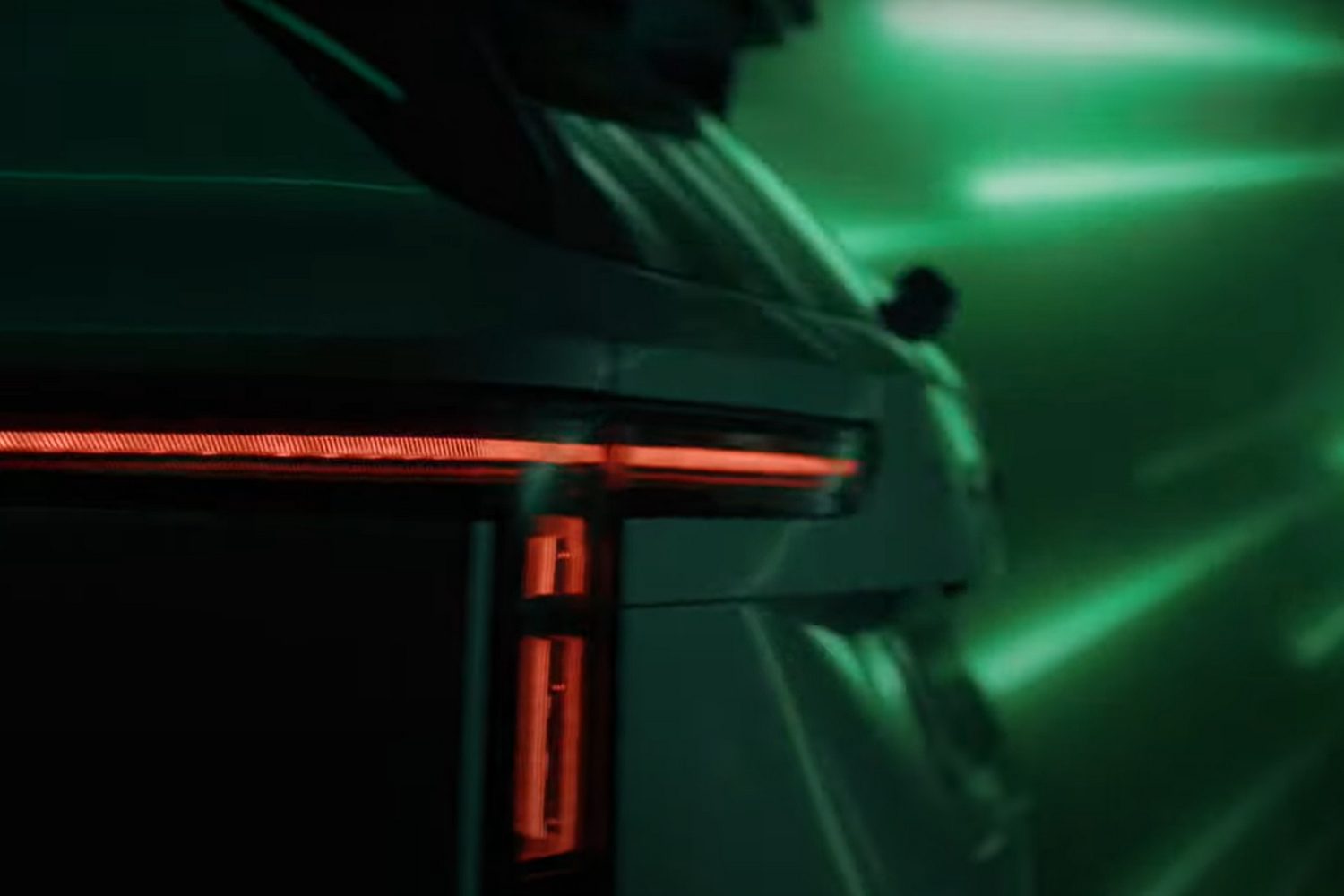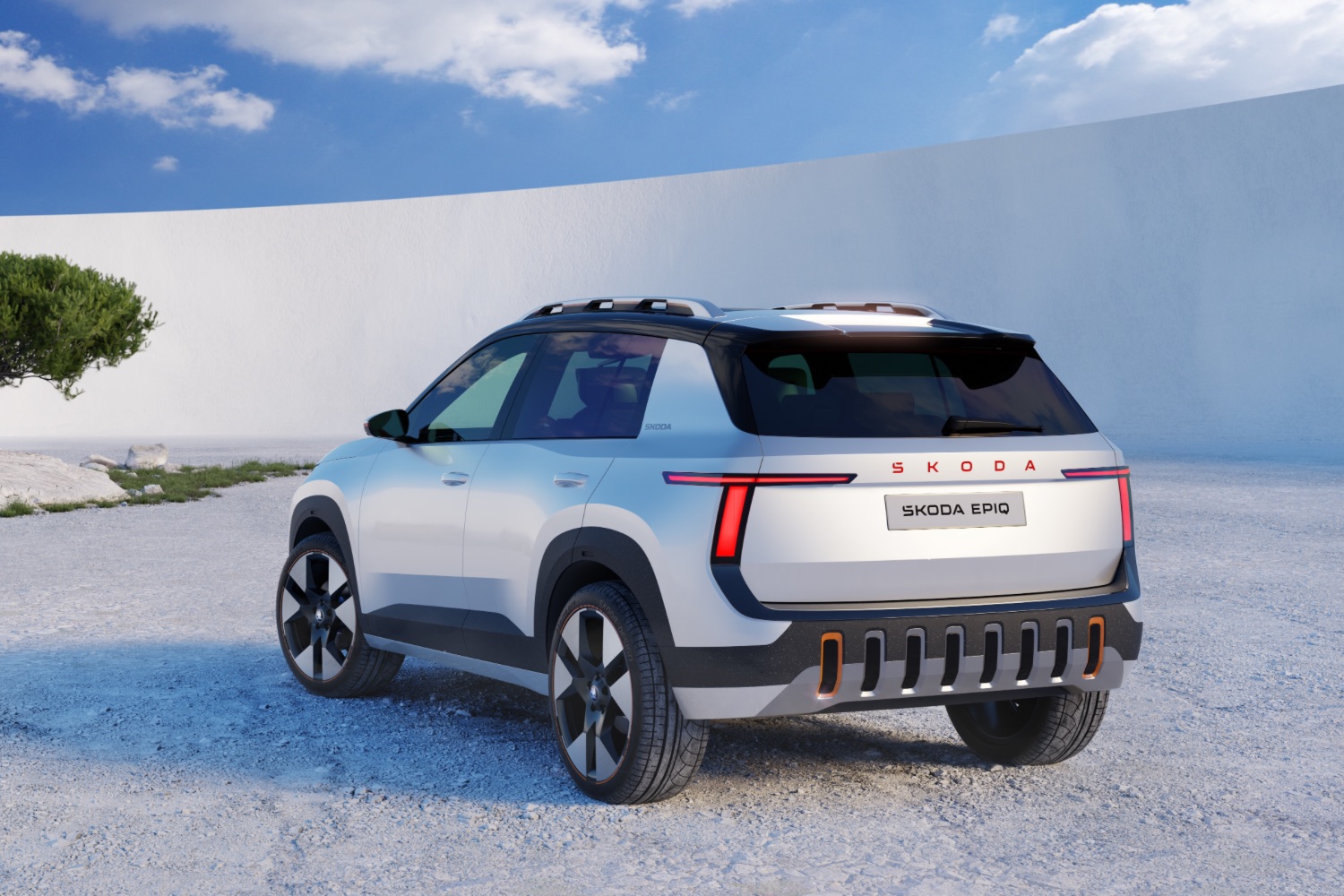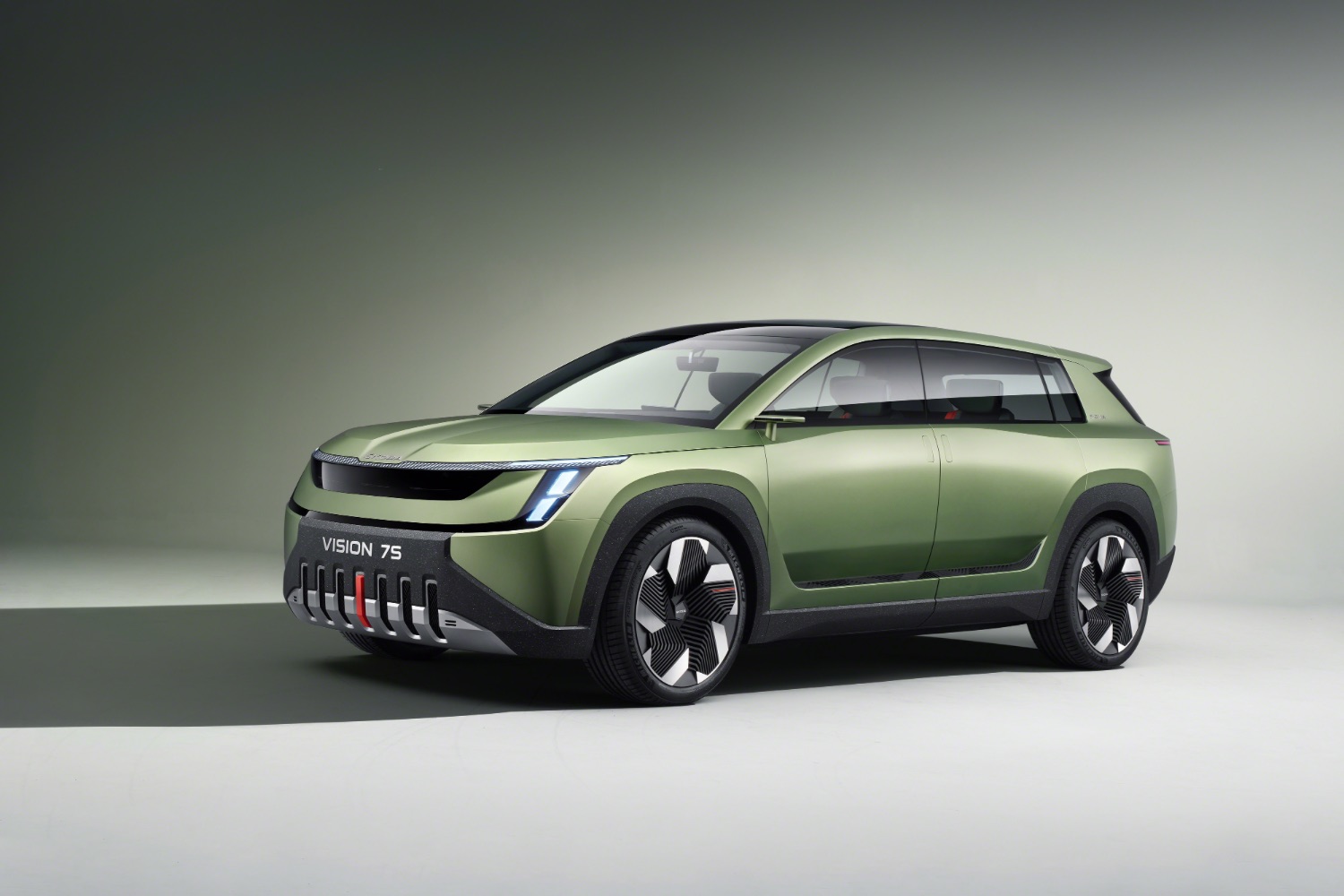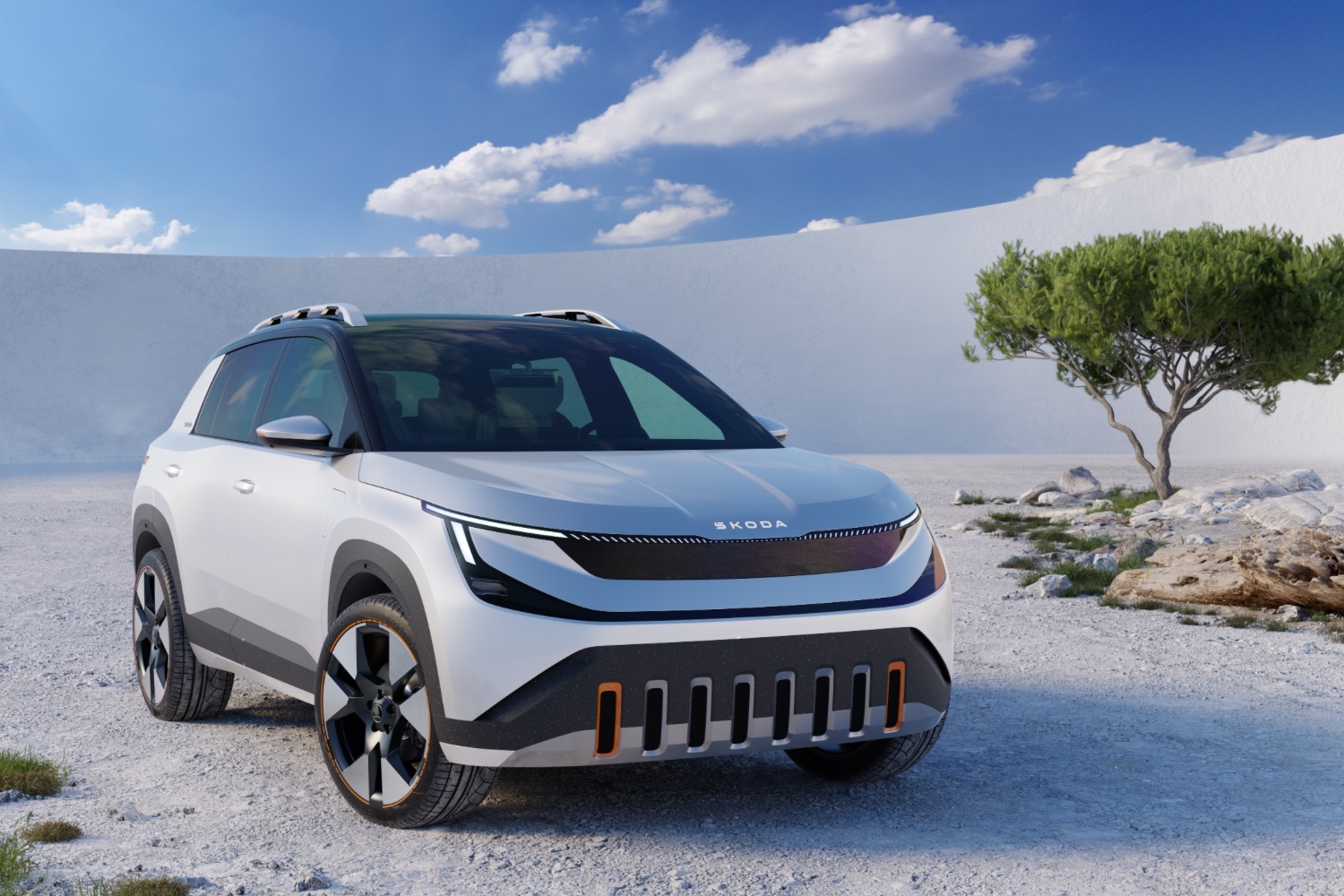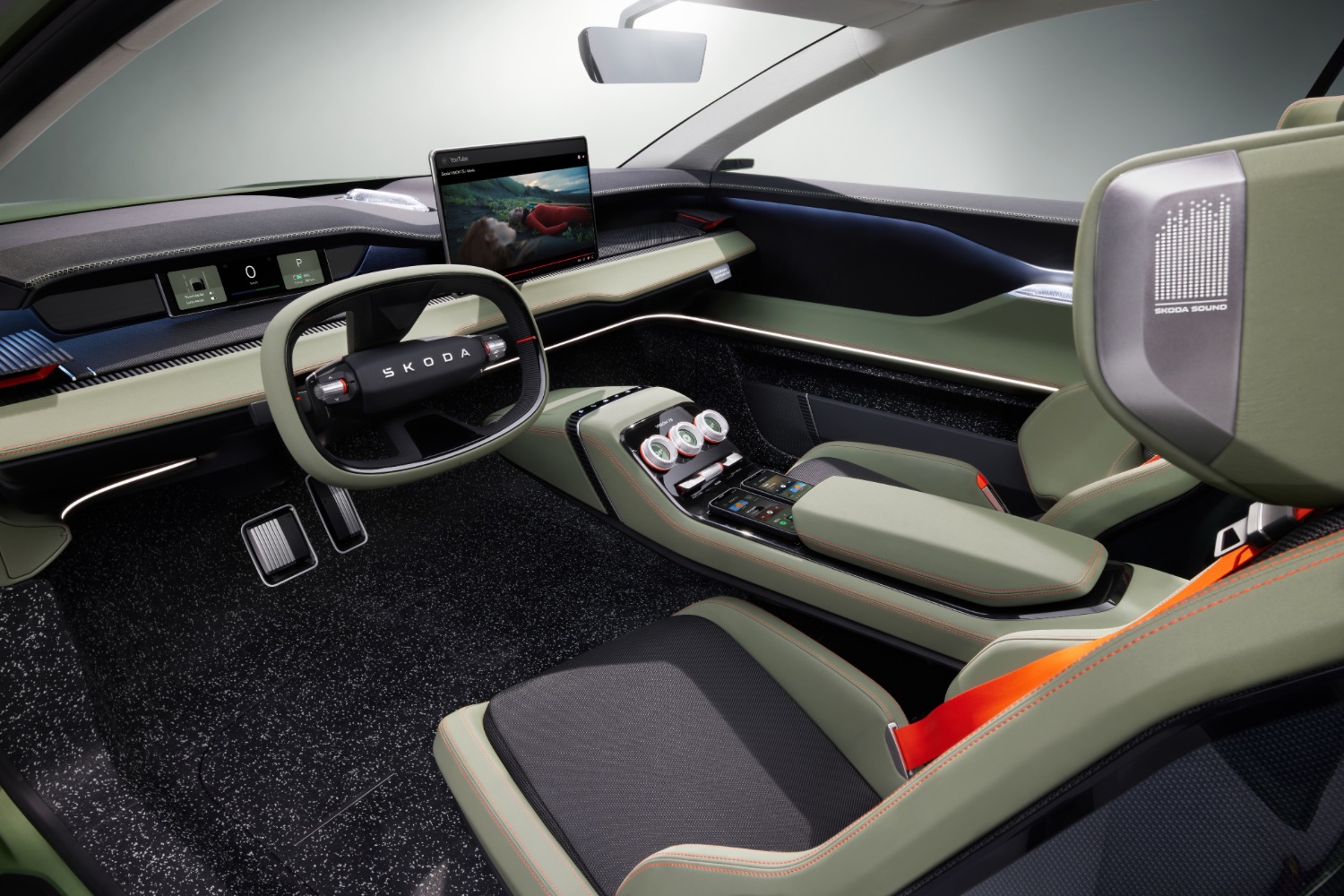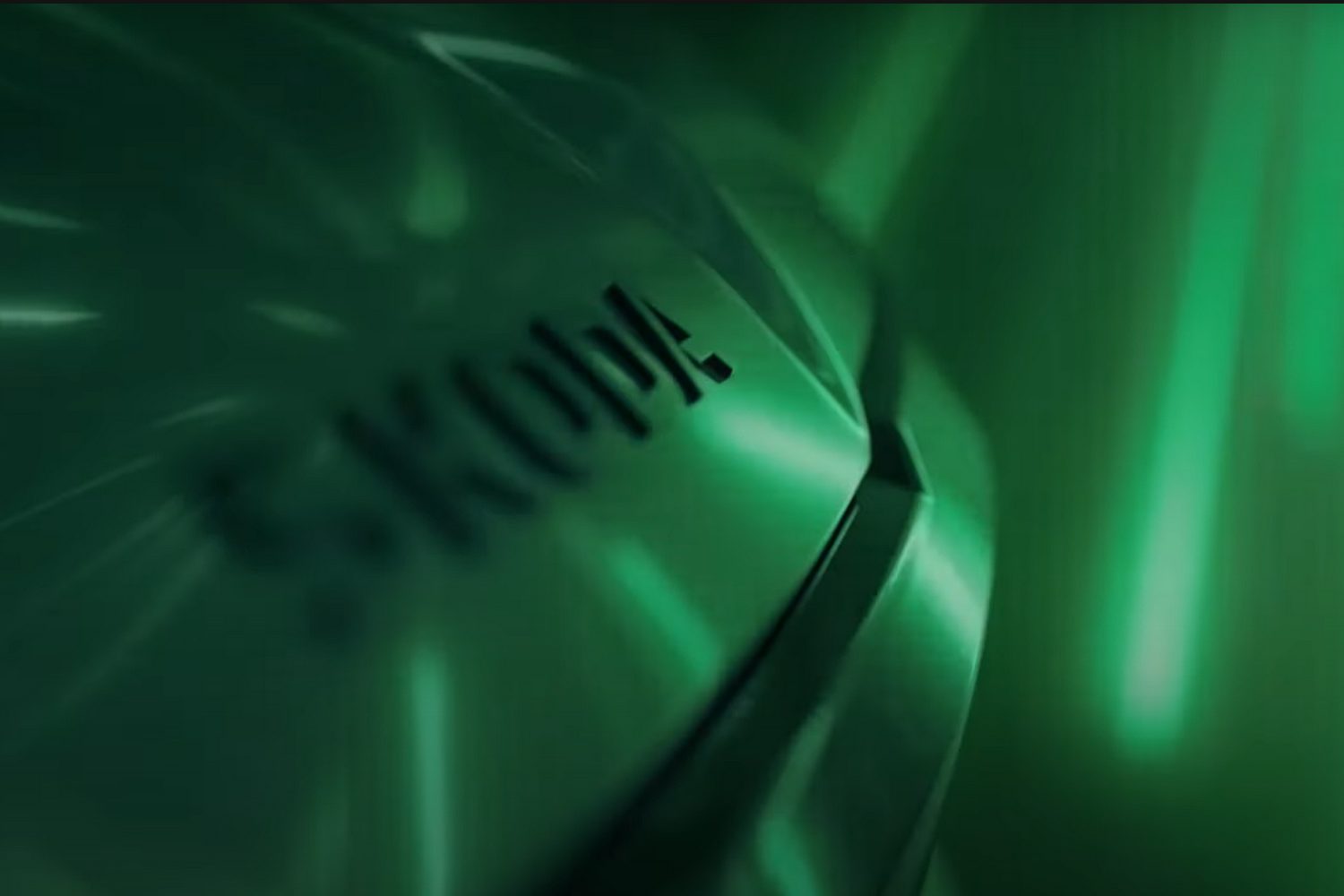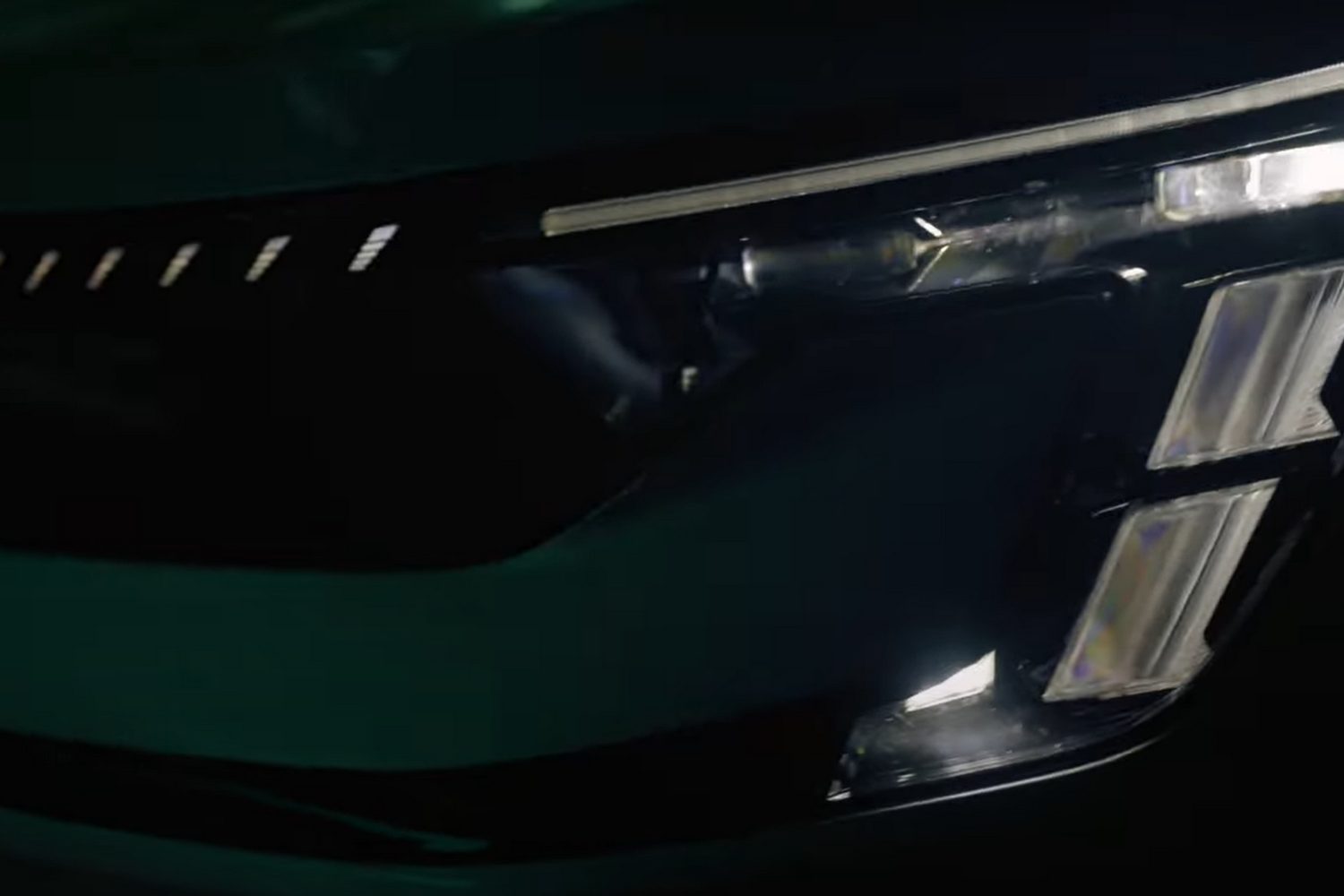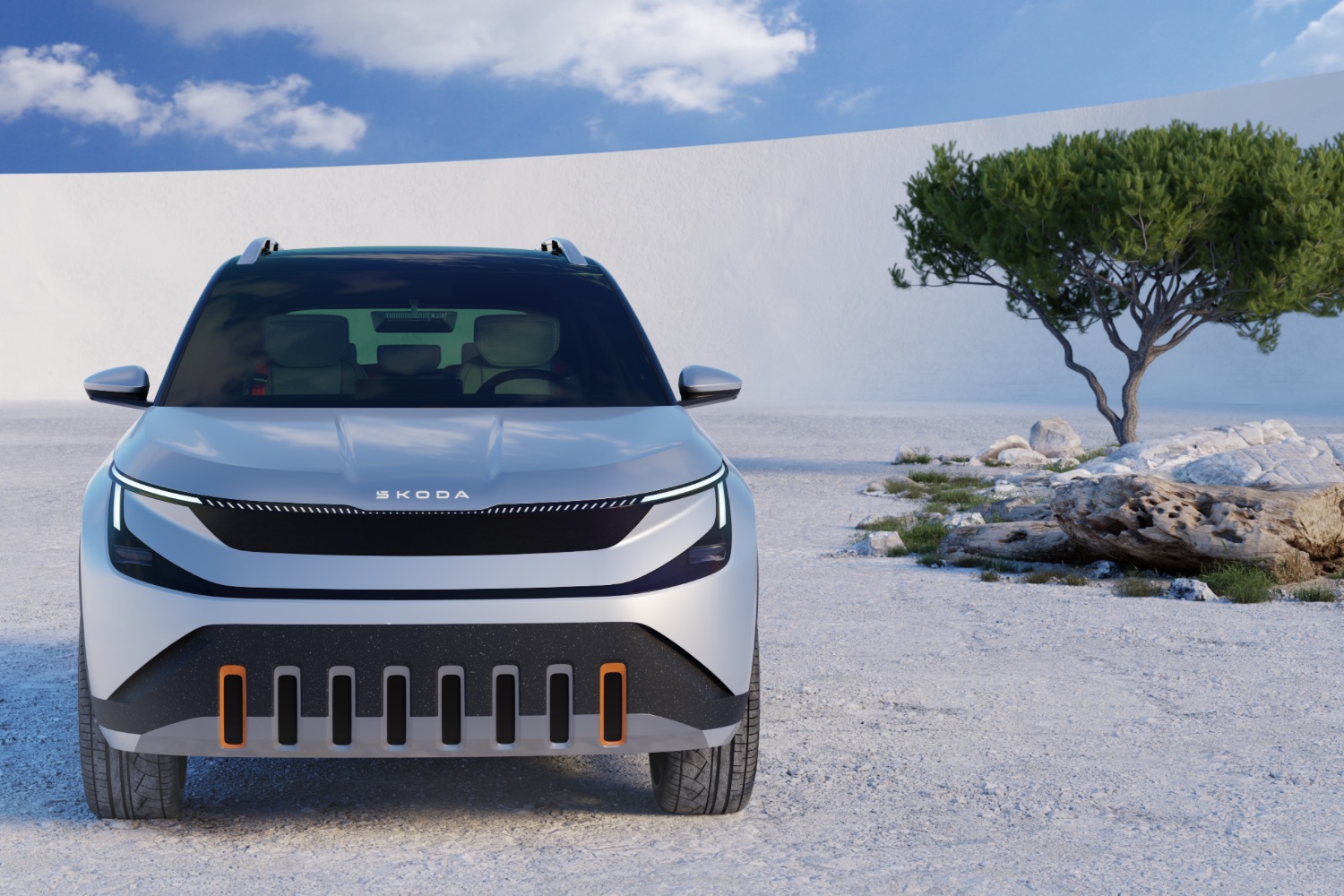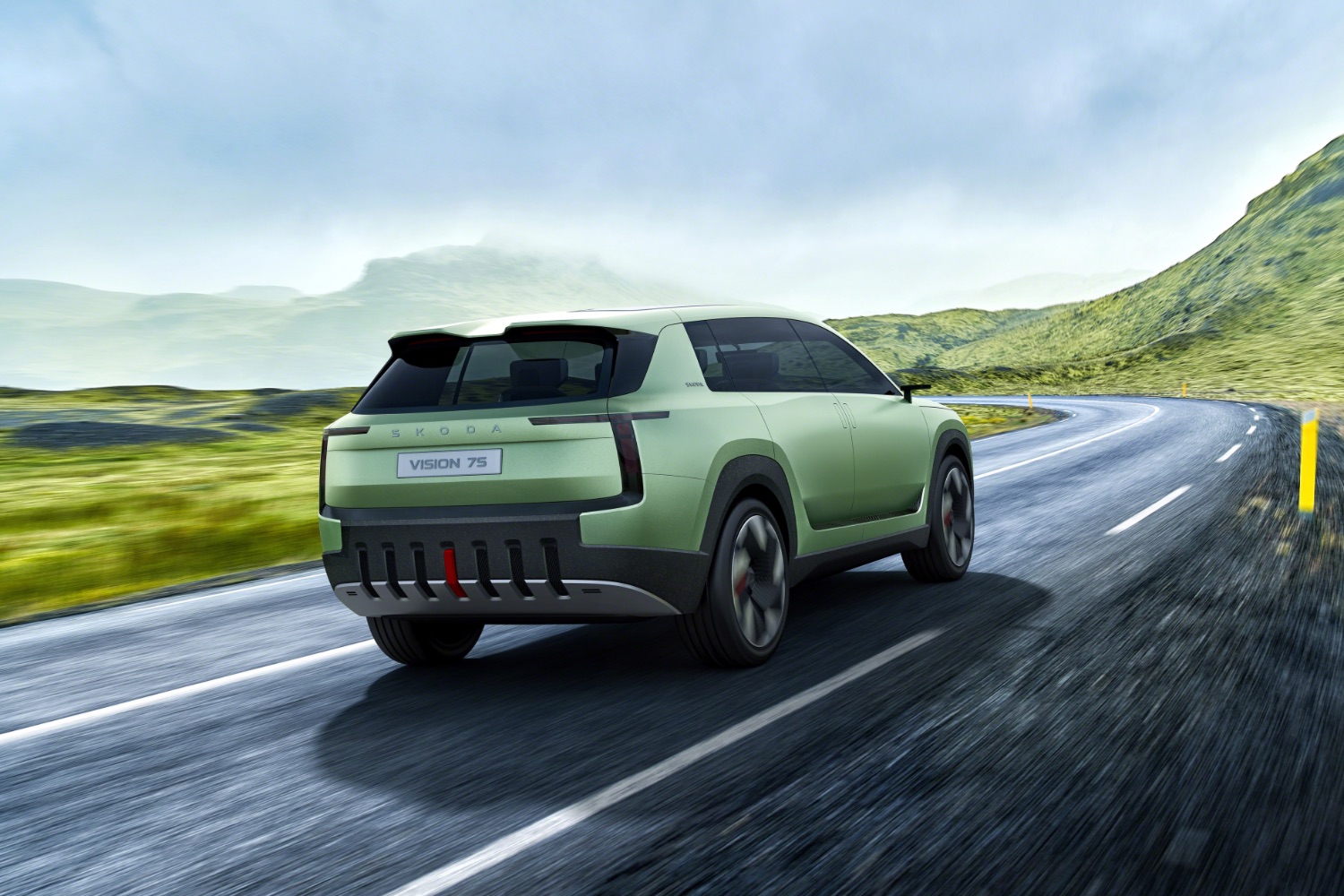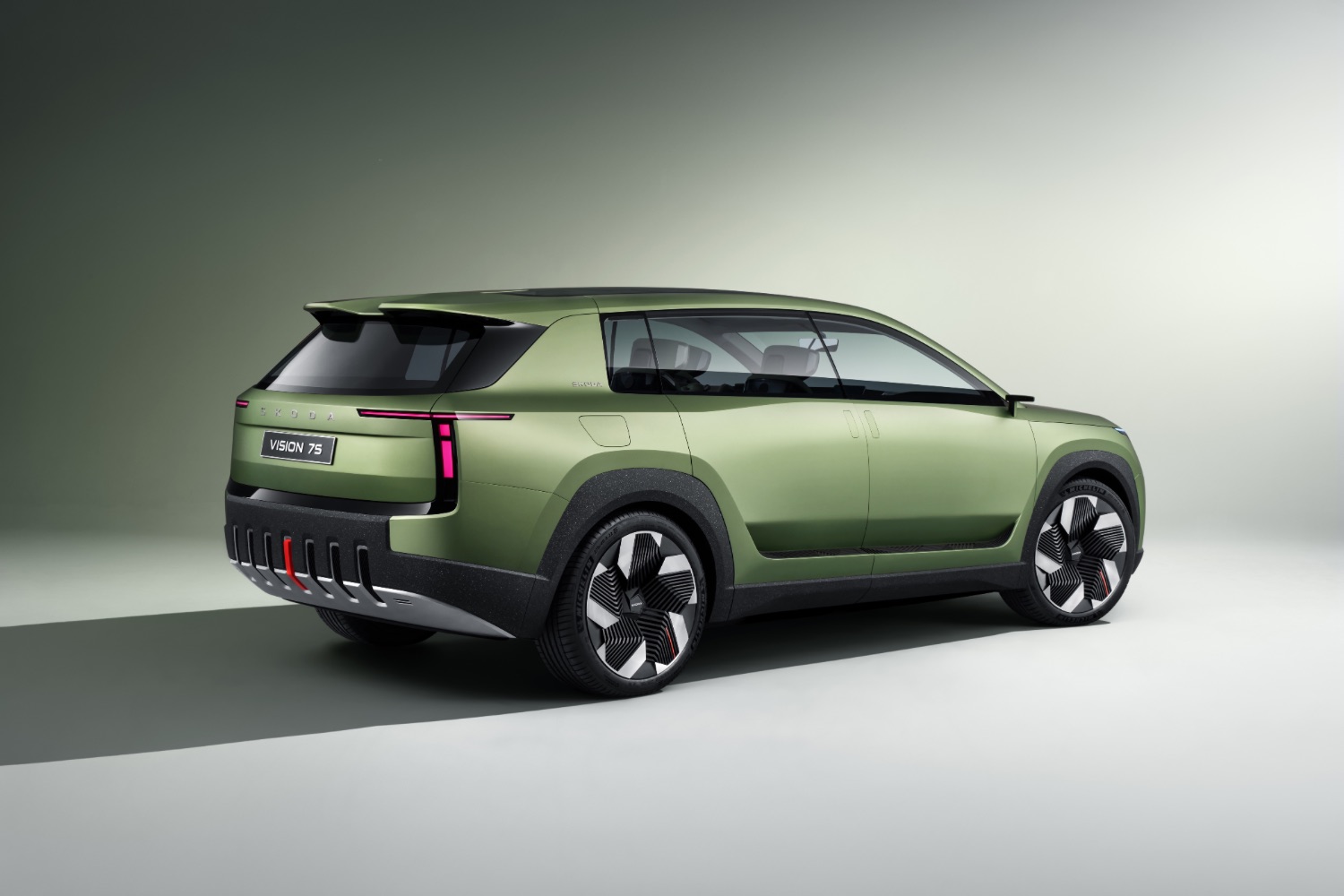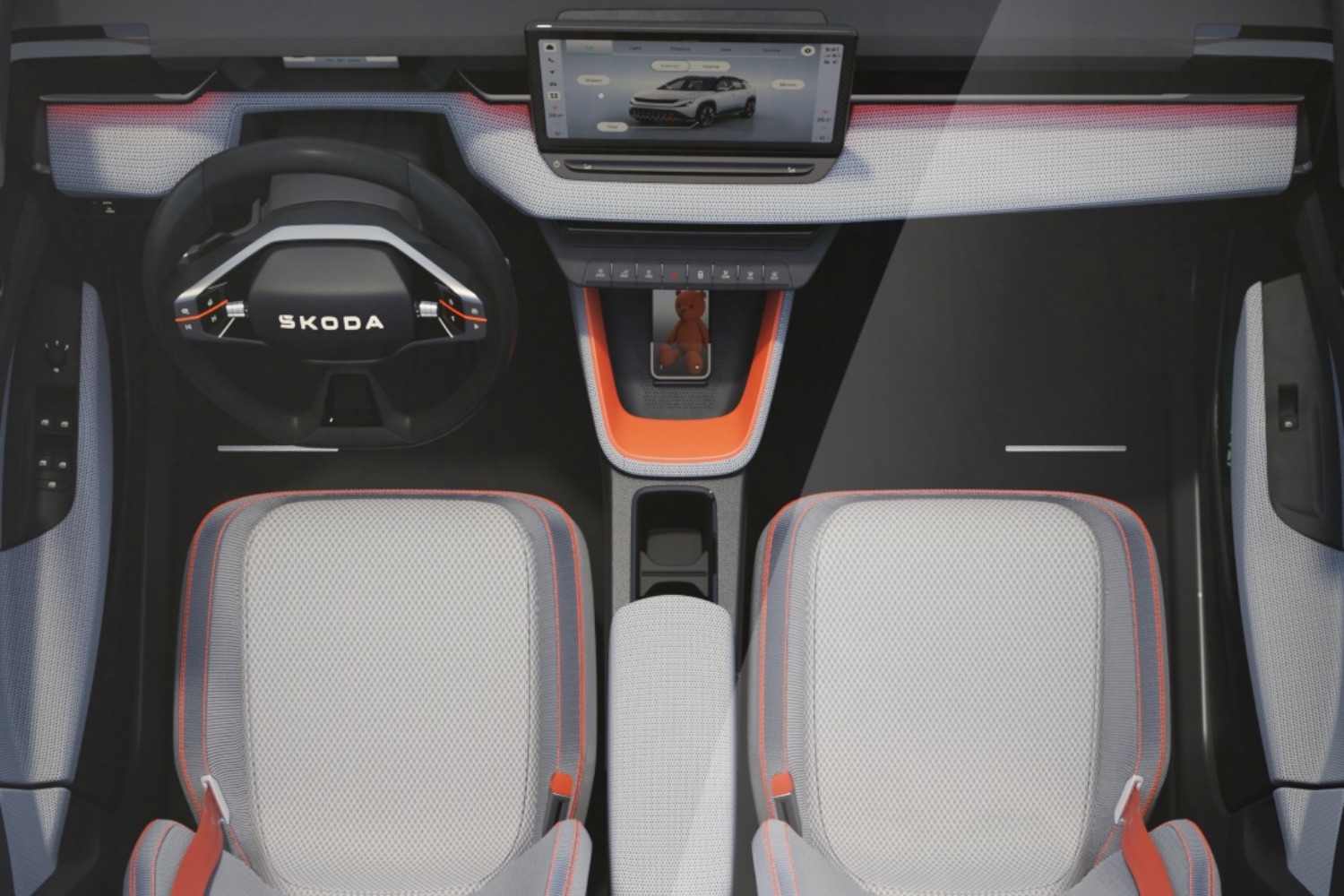Skoda is gearing up to launch two critical new all-electric models in the next year. At the Czech company's annual financial results day, we got our first glimpse of the new all-electric seven-seat Skoda, which will be sold alongside the Kodiaq.
What's this new EV SUV going to be called?
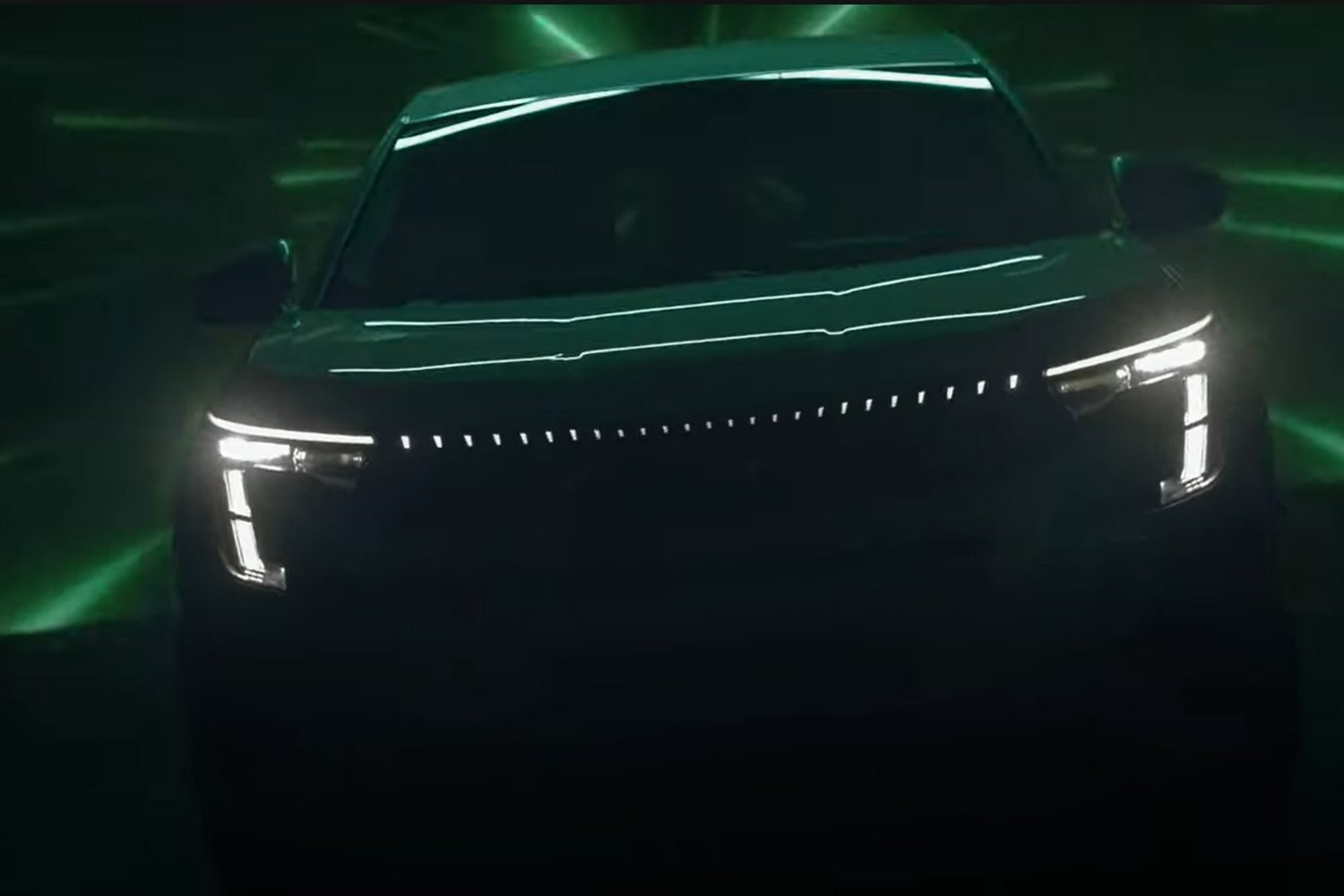
This car doesn't yet have a name, but we do know that it will be inspired in its styling by the Vision 7S concept car, and from the look of the heavily disguised images we've been shown, much of that Vision 7S will be making it through to showrooms.
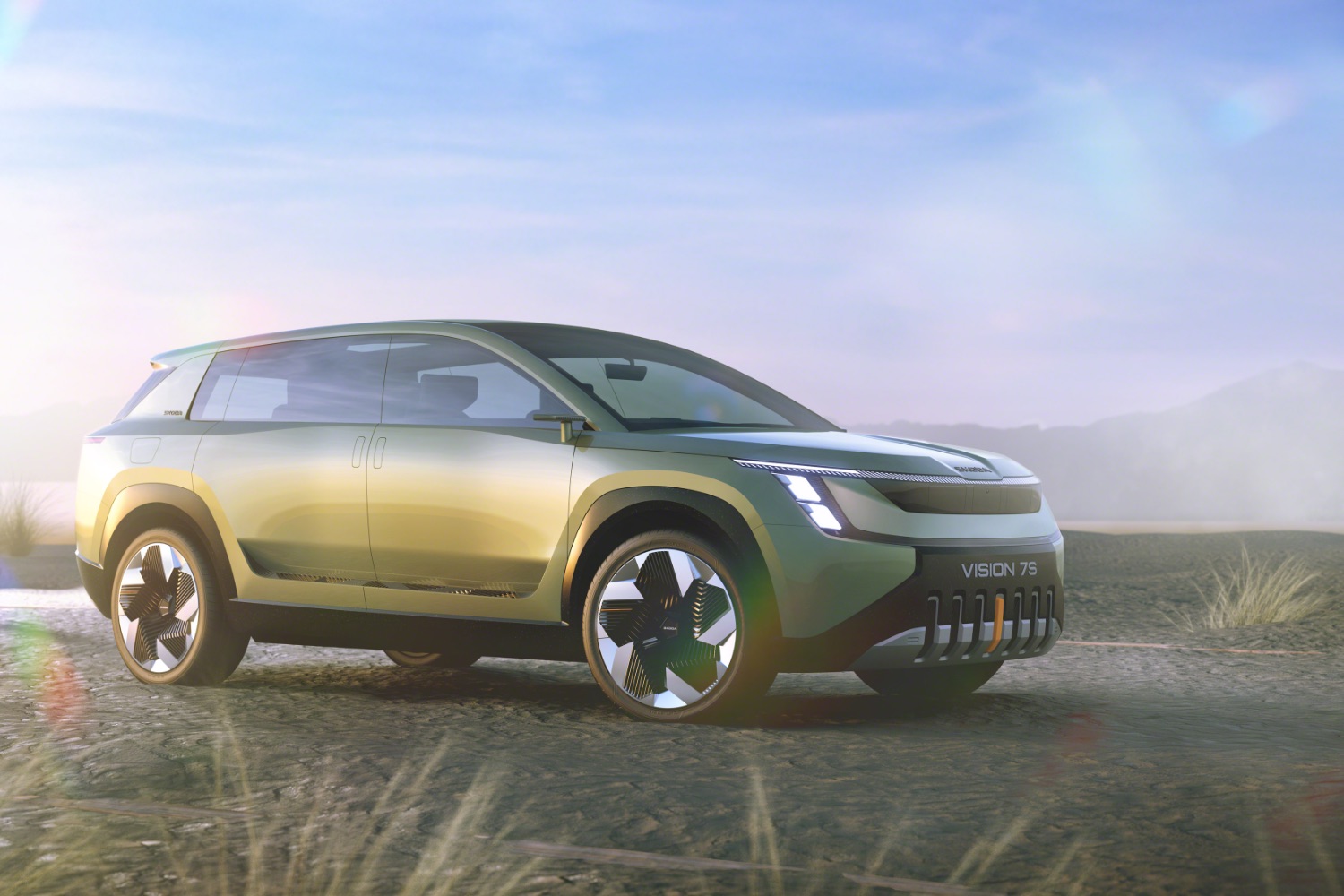
This new model will share its MEB electric car platform with the existing Enyaq and Elroq, so expect another E-to-Q name when it arrives. We know, at least, that it won't be called Epiq, as that's the name Skoda has chosen for its small, urban-friendly compact electric crossover, which will go on sale later this year and shares a front-drive electric car platform with the new Volkswagen ID.2 and the Cupra Raval.
The big EV SUV Skoda will take on the likes of the Kia EV9 and Hyundai's new Ioniq 9 at the top-end of the family electric car market, while the Epiq will be a foil for the likes of the BYD Atto 2 and the new Renault 4.
There are also rumours that Skoda will show off a concept version of its new all-electric Octavia at the Munich motor show in September, which will use VW's much-hyped next-generation SSP electric car platform, which is meant to be more affordable to build and should offer longer ranges and faster charging too.
Skoda seems to be on a roll at the moment, doesn't it?
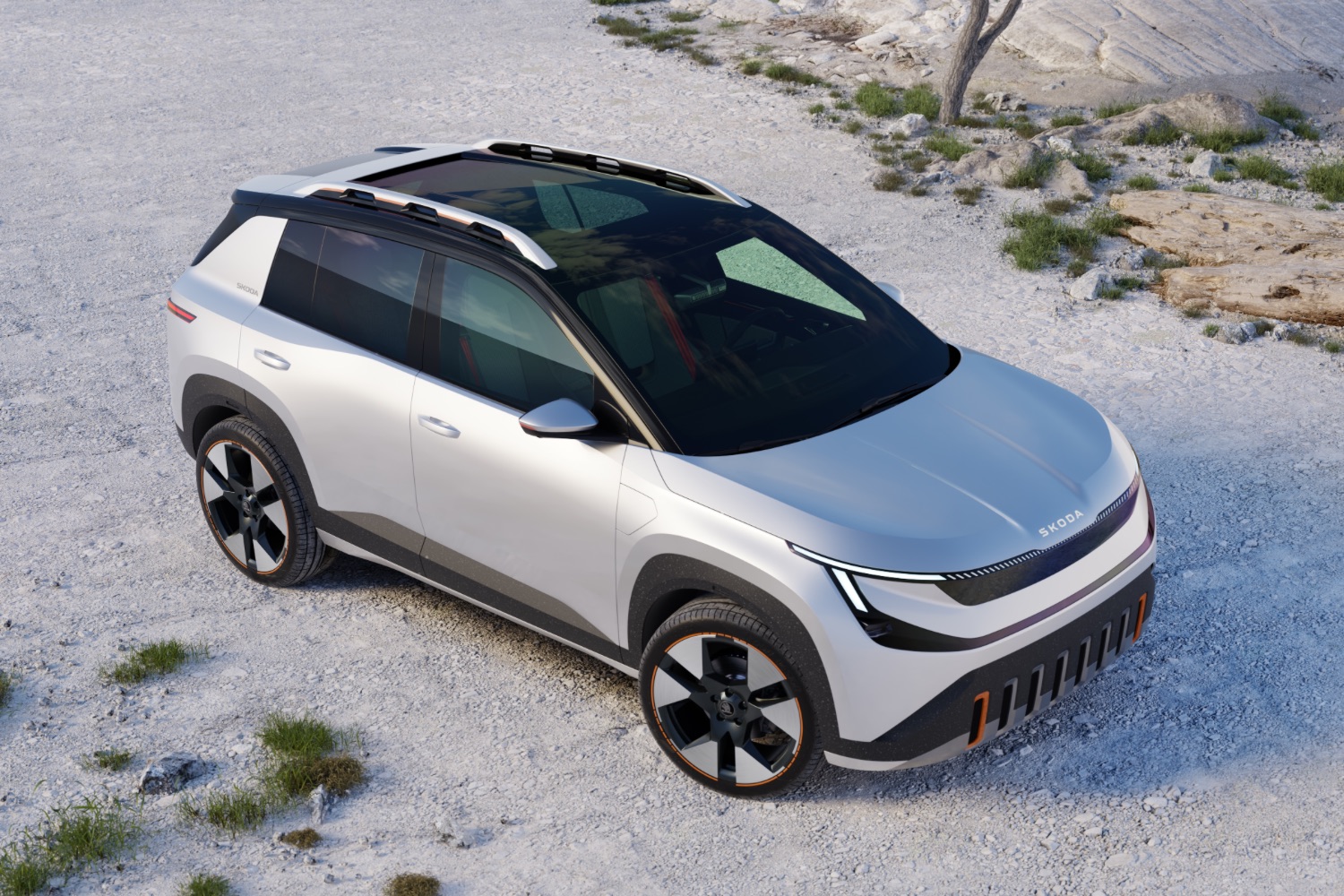
You bet. All of this extra electrification comes on the back of Skoda's most successful year ever. In 2024, the Czech brand - which was the third-best-selling car brand in Ireland last year - sold 926,600 vehicles to customers worldwide, a 6.9 per cent increase on 2023. In a world seemingly obsessed with SUVs, the Octavia remained the brand's best-seller, with 215,700 sold - a 12.4 per cent increase. Skoda became Europe's fourth-best-selling car maker last year, up from 7th position in 2023. The company's largest markets remained Germany, the Czech Republic, and the United Kingdom, while significant absolute increases were recorded in Ireland (sales here rose by 19.6 per cent last year), Türkiye, Poland, and Spain.
All of this sales success meant that Skoda had its best financial year ever, too, with €27.8 billion worth of car sales, leading to an operating profit of €2.3 billion.
Klaus Zellmer, Skoda's CEO, said: “I am proud to lead one of the few automotive companies that can report record financial figures during this transformative era. 2024 was the most financially successful year in our history, highlighting two of our core strengths: resilience and adaptability. A robust business model and clearly defined roadmap are proving their worth in volatile times. Our operational efficiency and the strong reception by customers of our modern product lineup have enabled us to outperform the market, particularly in Europe, where we secured the 4th overall position. These achievements are fundamental to keeping our company on track, even as we face upcoming challenges and financial pressures. They also empower us to continue making necessary investments from our own resources. I am deeply grateful to all Skodians for the extraordinary joint effort that consistently drives our brand forward, to our dealer partners for their incredible dedication, and not least to our customers for their trust in the most modern and diverse product portfolio in Skoda's history. Together, we are shaping a bright future for our company.”
What else is going on at Skoda?

Skoda's also pushing into new markets, especially in Asia. Skoda now has three locally produced models designed for the Indian market; for example, last year, it launched the Kylaq crossover to join the existing Kushaq and Slavia. The company is now building a new factory in Vietnam, and it re-entered the car market in Kazakhstan last year, too.
Meanwhile, Skoda is also making significant inroads into its carbon footprint. The company is on track to achieve CO₂ neutrality across all its production sites in the Czech Republic and India by 2030. A key milestone in this transition is the transformation of the headquarters Mladá Boleslav power plant, which is being converted to run entirely on biomass in partnership with SKO-ENERGO. This shift will reduce CO₂ emissions by up to 290,000 tonnes per year. Skoda Auto has also implemented effective energy-saving measures across all its global production sites. In 2024 alone, the company reduced its energy consumption by 44,675 MWh (-3.7 per cent), an amount equivalent to fully charging nearly 840,000 Elroq 50 models.



